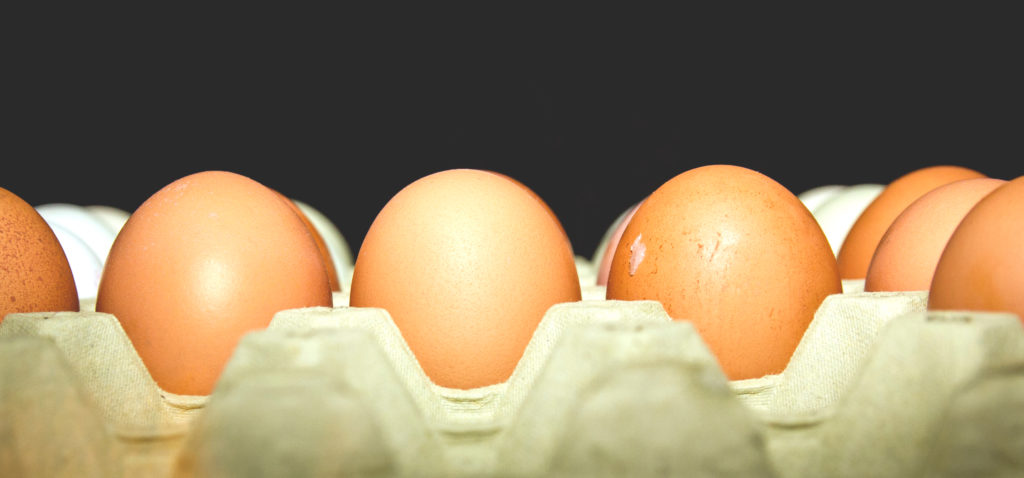Let’s Talk About Protein
Most of us have some general knowledge of protein and why it is important to our health. You may know that protein is made up of amino acids that together build muscle. But many of us might not be aware of the many jobs that protein does in the body beyond just being important for building muscle. Let’s talk about protein: what it is, what it does, where to get it in the diet, and if certain sources of protein are better than others.
What is protein?
Think of protein as the primary building blocks in the body. Proteins are made up of long chains of amino acids linked by peptide bonds. Typically, amino acids that make up dietary protein don’t serve as a direct source of energy unless we aren’t eating enough of the other two primary macronutrients: carbohydrates and fat. However, several amino acids may be converted to glucose during gluconeogenesis (the process by which we make glucose in the absence of carbohydrates) in the presence of glucagon (whose job it is to signal that blood sugar is low), and also by cortisol (our main stress hormone).
What does protein do?
Protein has many jobs to do. It provides structure to every part of the body, and makes up our hair, skin and nails. Over 40% of our total body protein is found in skeletal muscle, and over 25% in our organs. We need protein to make enzymes which act as catalysts for all our body’s functions, important hormones, and neurotransmitters like serotonin, GABA, adrenaline and dopamine. Amino acids (which are our protein building blocks) act as transport agents, shuttling nutrients through the body. Additionally, we need them to make immunoglobulins which confer immunity against pathogens that make us sick. Higher protein diets (supplying 25-30% of daily caloric intake) have been shown to reduce total caloric intake, boost metabolism and satiety levels and stabilize blood sugar throughout the day.
What are some good sources of protein?
Protein is found in most foods at least in small amounts. However, for a food to be considered a complete protein, it must contain all nine of the essential amino acids. All animal proteins are complete protein sources and include chicken, beef, fish, eggs and dairy (milk, cheese, yogurt). Most plant based proteins are incomplete proteins. The exception to this is soy and quinoa which contain all the essential amino acids. For vegetarians and vegans, a variety of plant based proteins should be eaten throughout the day to ensure that all the essential amino acids are obtained through the diet. Good plant based source of protein may include quinoa, rice, beans and peas, soy foods, flaxseeds, chia seeds, hemp, and peanuts/peanut butter. Contrary to popular belief, other nuts are not considered to be good sources of plant based protein.
Are certain types of protein sources better than others?
Overall, we should aim to get most of our protein from whole food sources. I often recommend a combination of both plant and animal sources of proteins. Animal sources of protein offer zinc, iron, Vitamin B12 and Omega-3 fatty acids that are not found in plant sources. Conversely, plant proteins are good sources of magnesium, folate, and calcium that are not found in animal sources.
How much protein do we need?
Many experts agree that the recommended dietary allowance (RDA) for protein is too low to be optimal, and is rather a measure of the amount of protein needed to prevent muscle wasting. The RDA for the average man is 56 grams daily and 46 grams for women. However, a very active person or athlete might need up to 1.2-1.4 grams of protein per kg of body weight daily. Older adults need more protein as well, around 1-1.3 grams per kg of body weight. Those with chronic diseases like chronic renal disease may need to limit their total protein intake and should work with their healthcare provider to determine the right amount of protein for them.
What about protein powders?
Many people ask me about protein powders. There are many available options when it comes to these products. While I usually recommend getting most of your protein from whole food sources, protein powders may be helpful for those struggling to meet their protein need. Animal based sources include collagen, whey and casein.
Collagen is not a complete protein as it is missing tryptophan, one of the essential amino acids. However, it has been shown to be beneficial for skin and joint health. Whey and casein are byproducts of cheese production, and make up 20% and 80% of milk protein, respectively. They are common ingredients in protein powders that are not plant based or vegan. Whey protein is more quickly absorbed than casein, and because it contains higher levels of the branched chain amino acids (BCAAs), particularly leucine, its been found to be more beneficial for building muscle. Casein is absorbed much slower than whey and is sometimes recommended as a good option to have before bed since it helps sustain fullness; it has also shown to spare muscle protein, while whey supports muscle growth. Both whey and casein appear to boost immunity.
Plant based protein powders generally do not contain all essential amino acids, and subsequently contain several different kinds of plant based proteins like pea, rice or hemp. Soy protein or quinoa protein are complete plant based protein powders. If you decide to supplement your protein intake, choose the option that best fits your unique dietary needs and goals!



